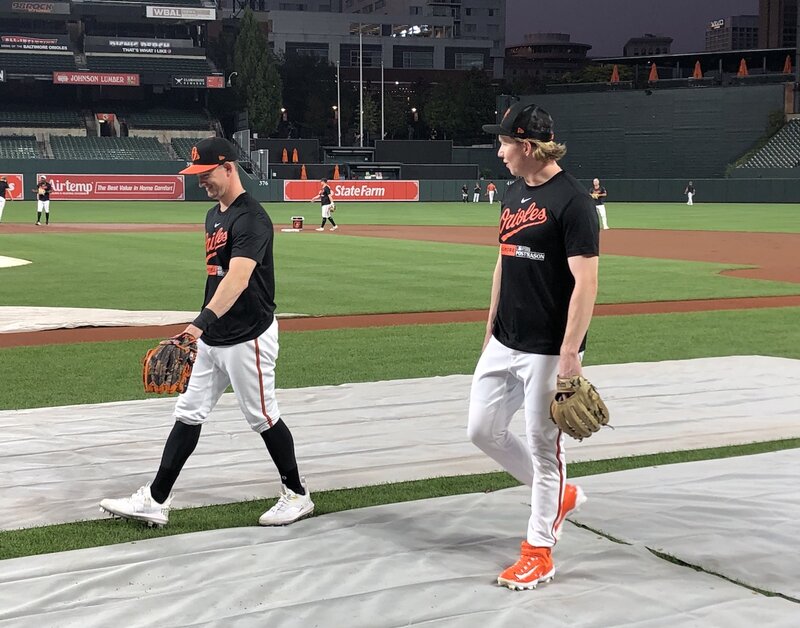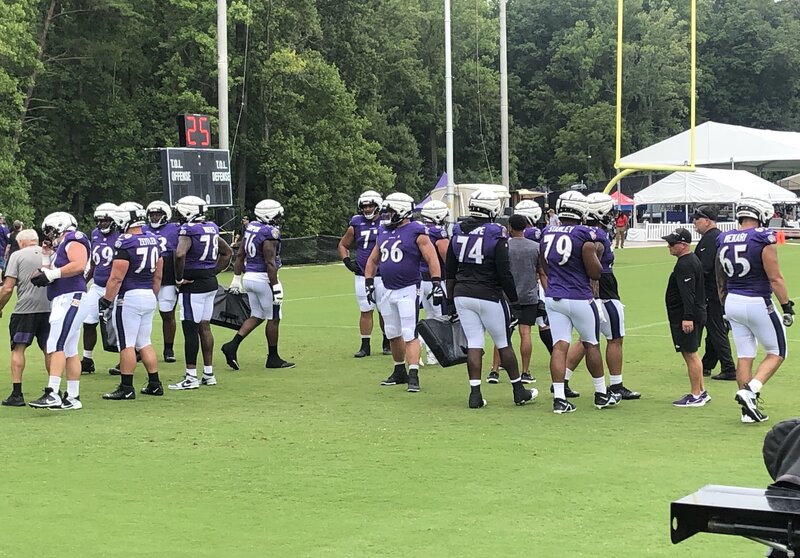BALTIMORE — The old baseball adage is heard countless times in the early weeks of every season, whether a team or player is off to a smoking start or struggling to clear the spring training cobwebs when the games begin to actually count.
It’s early.
Or, it’s still early.
The Orioles dropped their sixth game in seven tries on Sunday, falling 5-3 as the Tampa Bay Rays completed a three-game sweep at Camden Yards. The club now finds itself with a 14-19 record and in last place in the American League East. After a 6-1 start to spark early-season excitement, Baltimore has now dropped 18 of its last 26 games as the lineup continues to sputter and the back of the starting rotation and bullpen struggle to get the opposition out.
After losing 11 of 13 in mid-April, the Orioles and optimists insisted it was simply a bad stretch, claiming it was too early to panic. A brief run of five wins in six games to close April looked like the start of better baseball, but that idea vanished after the Orioles flamed out in Kansas City and the Rays extracted revenge for the Orioles’ sweep in Tampa Bay to begin the season. The lineup has now scored three or fewer runs in the last five games to continue the early-season frustration after the offense was expected to be much better this season.
At some point — 33 games into the season, or roughly a fifth of the season — you have to ask yourself when it stops being “early” and concerns become more legitimate. And while many — including me — have pointed to the Orioles’ 2010 woes as a sign that things could be a lot worse to begin 2011, should a historically-terrible pace through the first fourth months last season really be the standard by which a supposedly improved club is judged?
“Just keep grinding,” said manager Buck Showalter about the club’s struggles following a third straight loss to the Rays. “What do you do, give in? Pull the dirt around you? That’s not going to happen. I was proud of the effort and the way they came back today. [The Rays are] pitching well and our bullpen came in and gave us a chance to get back in there. It just didn’t happen.”
After a 34-23 finish put him in unique, mystical territory entering last winter, Showalter sounds far more like Lee Mazzilli or Sam Perlozzo or Dave Trembley these days, unable to explain the short-circuited lineup that has done nothing to help alleviate pressure on the pitching. Of course, Showalter can do a lot of things, like change up the lineup as many have suggested, but he doesn’t swing a bat. Entering Sunday, the Orioles ranked 12th in the American League in batting average, 13th in on-base percentage, 11th in runs scored, and 10th in slugging percentage.
Derrek Lee and Vladimir Guerrero have looked old, Mark Reynolds hasn’t hit his weight (.187 after going 0-for-2 Sunday), and J.J. Hardy has 15 at-bats all season. Even worse, Brian Roberts and Nick Markakis aren’t getting on base consistently, the two players counted on the most in that department. Looking up and down the lineup, Luke Scott has really been the only player to produce what you would have expected entering the season. Roberts, Matt Wieters, and Adam Jones have had brief stretches, but the collective result has amounted to a very underwhelming lineup through the first five weeks of the season.
If Scott’s comments following the game were any indication, players are beginning to realize it’s no longer that early in the year. The frustration is mounting.
“I take a lot of pride in what I do and I speak for a lot of these guys,” he said. “We come prepared as a group and we want to see fruit from our labor on the field. For me, I lose sleep over this stuff, it bothers me. Do I have peace during it? Yes, because I know I have done everything I can possibly do. Get in the weight room, get in the cage and take care of my body.
“It’s going to turn for us. If these are our low moments — with everyone struggling — imagine what it’s going to be like when we are clicking. That is what we are looking forward to.”
For now, everyone can only wait, but the poor on-base percentage and lack of plate discipline — despite drawing walks on Sunday — doesn’t exactly scream a turnaround is imminent.
Of course, the pitching hasn’t been much better as the Orioles continue to cringe every time they get to the back end of the rotation. Brad Bergesen again allowed a start to get away from him on Sunday, allowing five combined runs in the fourth and fifth innings in a fifth career loss in five career starts against the Rays. He has now allowed 24 earned runs in 23 2/3 career innings against Tampa Bay. His earned run average ballooned to 5.57 after the loss, and the right-hander will be a strong candidate to be moved to the bullpen when Brian Matusz returns later this month.
However, Bergesen isn’t even the worst — statistically speaking, anyway — pitcher in the rotation through the season’s first 33 games. Chris Tillman’s 7.16 ERA, diminished velocity, and poor command don’t exactly scream for the 23-year-old to remain in the rotation either. The two have a combined 6.30 ERA in 60 total innings this season, a painful duo to continue sending to the hill, but who else is there to turn to with the minor leagues bare?
Baltimore starters have allowed 23 earned runs in 18 2/3 innings in the last four days, with Jeremy Guthrie and Zach Britton also taking it on the chin this weekend. With the collective struggles at the plate and on the hill, the Orioles will benefit from Monday’s day off before the Seattle Mariners come to town to conclude a six-game homestand off to an 0-3 start.
“It shouldn’t matter mentally,” said Showalter after the Orioles were swept in a three-game home series for the first time since he became manager last August, “but it’s a challenge to be mentally disciplined and not let that be a ‘Here we go again’ mentality. And that will change, too. We’ll pitch better.”
Showalter continues to remain upbeat, insisting the “worm will turn” as he often likes to say. But despite popular belief last season, the Orioles skipper doesn’t hit, pitch, run, field, or even walk on water. Juggling the lineup or making another pitching change only goes so far; the players aren’t producing.
And it was the same problem all the previous managers had.
Everyone — players included — keeps waiting around for the Orioles to start playing better. Their brief stretches of strong play have been dwarfed by longer periods of bad baseball.
There’s still plenty of season, but it’s no longer “early.”
If the Orioles are truly a better team, it’s time they start showing it.


































